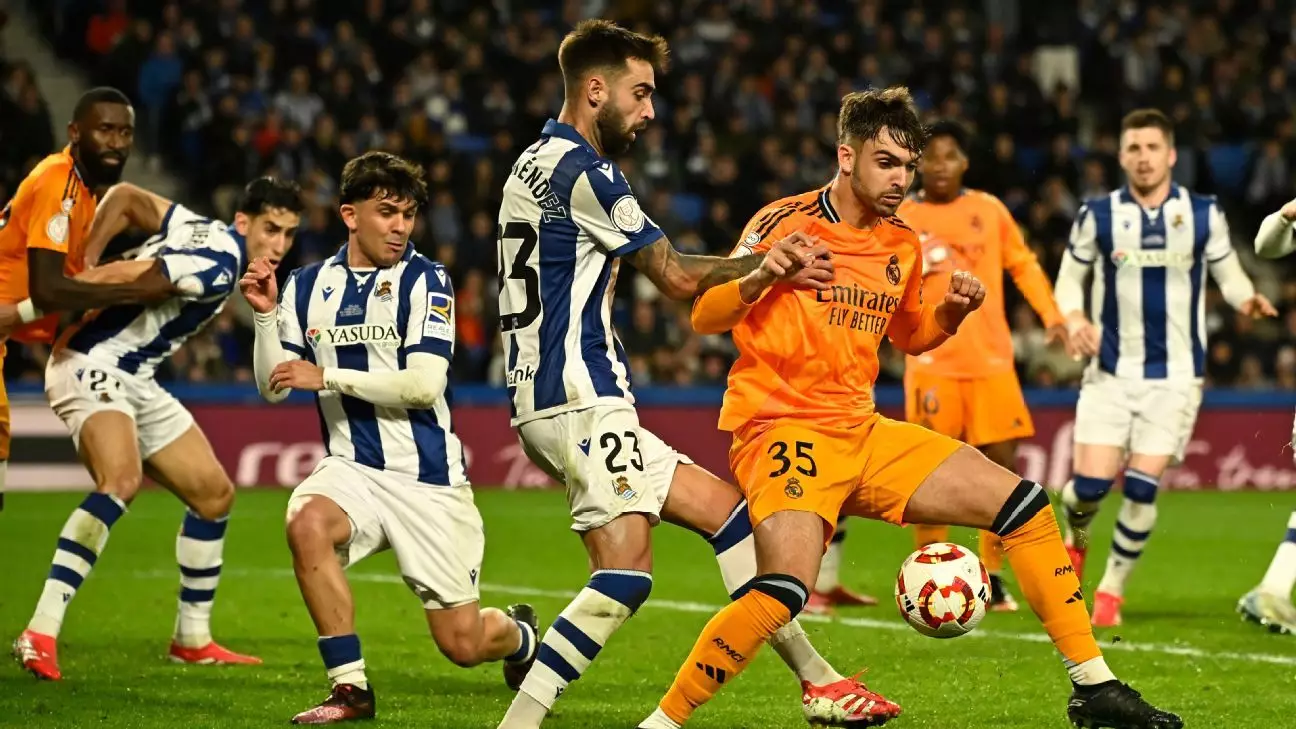Recent events at the Copa del Rey first leg semifinal between Real Madrid and Real Sociedad have raised significant concerns over the prevalence of discrimination in sports. The match, which was taking place at the Reale Arena, was temporarily halted after Madrid’s defender Raúl Asencio was subjected to hostile chants from the crowd. The situation unfolded dramatically when Madrid’s captain, Vinícius Júnior, alerted the referee about the abuse that was being directed at Asencio, leading to the implementation of Spain’s anti-hate protocol.
Referee José María Sánchez Martínez responded promptly by halting the match and displaying a message aimed at curbing discrimination, stating, “No to racist, xenophobic or intolerant chants. Support the team, respecting the opponent.” This immediate action underscores a broader commitment within Spanish football to combat hate speech and foster a more inclusive environment. However, this incident reveals deeper societal issues around the treatment of individuals within sports arenas, particularly those who are already grappling with personal controversies.
Asencio’s exposure to public scorn is exacerbated by ongoing legal troubles related to allegations surrounding a sexually explicit video involving minors. Although he is not the alleged perpetrator, his association with the case appears to have influenced public sentiment against him. The continuation of the court’s investigation further complicates his circumstances, making it challenging for him to distance himself from the unfolding scandal. These converging pressures undoubtedly impacted Asencio’s performance and emotional well-being during the match, informing both the reaction of the crowd and the decisions made by his coach, Carlo Ancelotti.
The reactions of coaches and players alike signal a pivotal moment in striving against discrimination and echoing shared concerns about player welfare. Ancelotti, who made the decision to substitute Asencio at halftime due to the combination of the player’s distress and a prior yellow card, emphasized the negative effects of the crowd’s hostility. He remarked, “Nobody likes a stadium to sing ‘die’ at them,” which highlights the psychological toll such abusive language can take on athletes.
Real Sociedad’s captain, Mikel Oyarzabal, along with their coach Imanol Alguacil, publicly denounced the abusive chants. Their condemnation suggests a solidarity against hatred in sport, reinforcing that irrespective of club loyalties, human respect should remain paramount. This unified front is essential in addressing fan behavior, ensuring that stadiums can be spaces of support rather than hostility.
As soccer continues to be a significant cultural phenomenon, the responsibility of all stakeholders—players, coaches, fans, and regulatory bodies—becomes ever more crucial in shaping an inclusive atmosphere. The incident involving Asencio not only serves as a reminder of the ugliness that can manifest in sports but also highlights the need for consistent and comprehensive measures to combat such violations. While protocols are essential, educational initiatives aimed at promoting respect and empathy at all levels of the game must also be prioritized.
The incident at the Reale Arena is not merely a singular event but rather a reflection of ongoing societal issues that require urgent attention. Only through a collective commitment to addressing discrimination in all forms can the spirit of sport be preserved—one that celebrates fair competition while firmly rejecting hate.


Leave a Reply